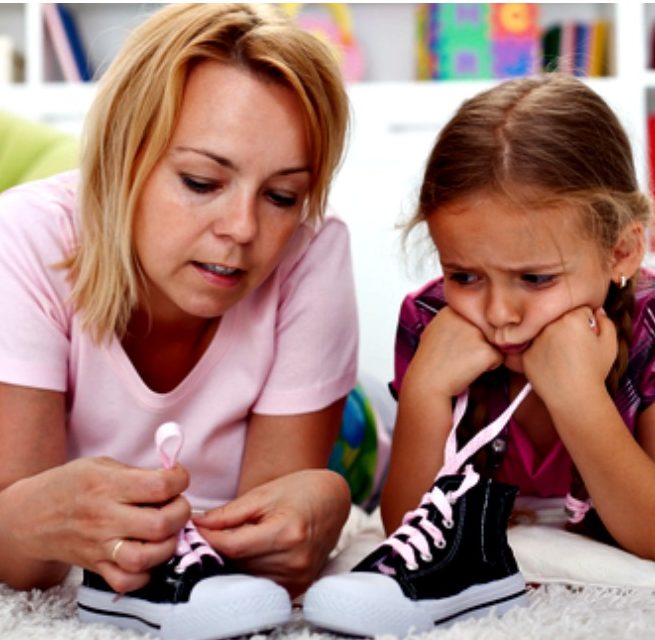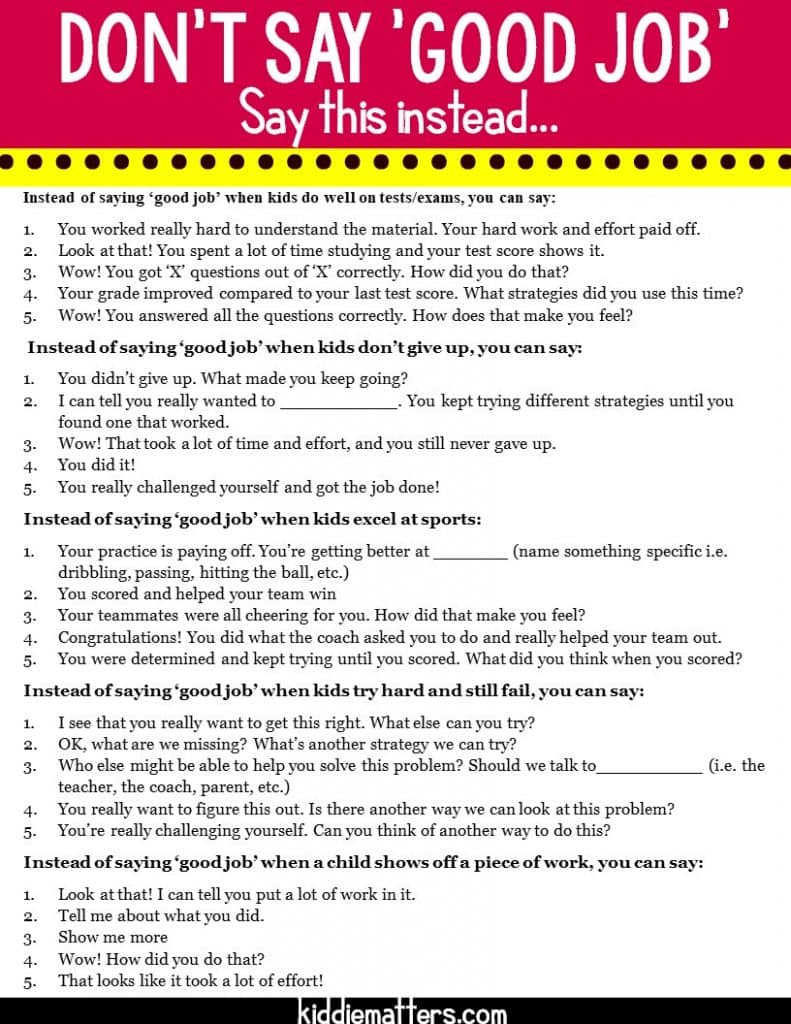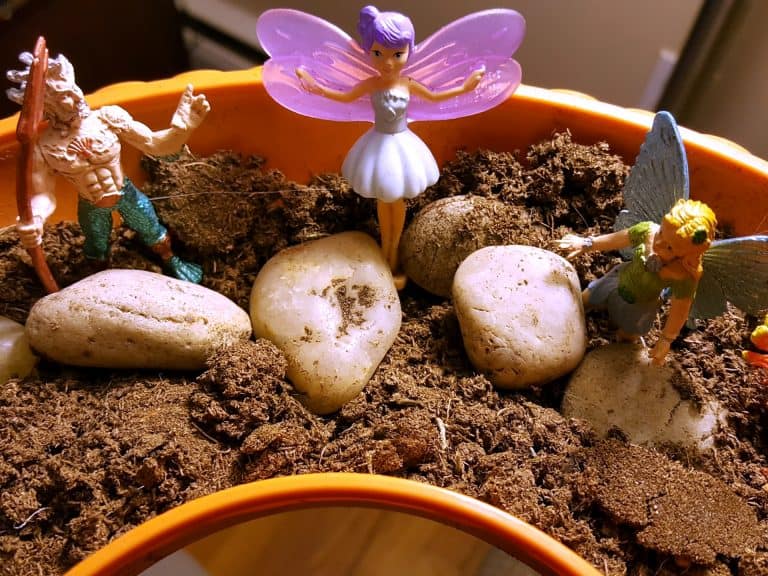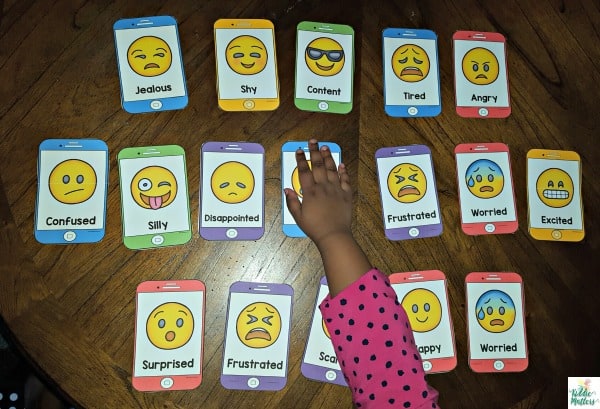Growth Mindset For Kids: How Parents Can Encourage Growth Mindset In Children
Inside: Strategies to encourage a growth mindset in children so that they can take on challenges with confidence.
“If parents want to give their children a gift, the best thing they can do is to teach their children to love challenges, be intrigued by mistakes, enjoy effort, and keep on learning.”-Carol Dweck
As parents, we want the best for our children. We want them to be happy and successful. We are committed to teaching them the skills needed to live their best lives.
However, there’s no instruction manual for raising successful kids. We’re pretty much learning on the job. Trying our best to figure out things like:
How do I help my child find success?
What can I do to encourage them to do their best and not settle for good enough?
How can I get them to try new things?
What are some things I can do to motivate them to stick with things even when they have a hard time finishing them?
One of the leading authorities on growth mindset for kids is Stanford psychologist, Carol Dweck. She suggests that the answers to the above questions depends on how parents and children believe abilities and talents develop.
According to Dweck, our beliefs about where our abilities come from, falls somewhere on a continuum between having a fixed mindset and a growth mindset (Dweck, 2006).
Dweck defines a fixed mindset as the belief that basic qualities such as intelligence and talent are fixed traits that you are born with which cannot be changed.
People with a fixed mindset believe that they are either good at something or they are not. They believe that they are either smart, or they are not.
When kids have a fixed mindset, they often perform poorly academically, especially as school work gets harder. They give up when faced with challenges (i.e learning a new skill like playing an instrument) because they believe that they lack the talent to do something.
On the other hand, Dweck defines a growth mindset as the belief that success is based on hard work, training, and perseverance. People with a growth mindset believe that they can learn and do almost anything with commitment, dedication, and hard work.
Children with a growth mindset recognize that even if they don’t have a “talent’ for something, they can always improve with practice.
How To Create A Growth Mindset Home Environment
Recent studies show that children develop beliefs about where abilities (i.e. intelligence and talent) comes from based on what they learn from their environment.
For example, when children come from a home environment in which they learn that abilities such as intelligence and talent are abilities you are born with and are completely based on genetics, they tend to develop a fixed mindset.
They are afraid to challenge themselves or try new things. They believe they don’t have the talent or intelligence to do what it takes to get the job done.
Conversely, kids who grow up in a growth mindset home environment typically believe that they can grow their intelligence and talent with practice, effort, and hard work. They understand that even though they may not achieve success right away, if they persevere, they can grow and succeed (Ricci & Lee, 2016).
So how do parents cultivate a home environment that develops and reinforces a growth mindset? Here are some strategies parents can implement immediately to create a growth mindset home environment.
Model growth mindset for kids
Parents have tremendous influence on how their children’s belief system develops. If you want your child to develop a growth mindset, then show them what a growth mindset ‘looks’ like.
You can model a growth mindset for kids by showing them how you handle making mistakes. This helps them learn what to do when faced with their own setbacks.
Additionally, you can model a growth mindset for kids by showing them that you are willing to try new things. This gives them the confidence to challenge themselves without having a fear of failure.
When children see their parents modeling a growth mindset, they learn that making mistakes, struggling through obstacles, and rebounding from failure are natural life experiences. These types of experiences allow children’s brains to grow and change over time.
Teach children that their brains can grow and change
Children need to understand that the brain can grow and change. Let them know that how their brain works gets better as they have more life experiences.
This is important because if a child believes that how their brain works is fixed from birth, parents will have a difficult time motivating them to do or learn anything new
It’s crucial that you teach your child that the brain is like a muscle. It gets stronger or weaker depending on how they use it.
This lets children know that even if they don’t have a ‘talent’ for something, their brains are designed in such away that with hard work and effort, they can still learn and improve their ability to perform or complete a task.
The following resources are excellent at explaining growth mindset for kids:
Your Fantastic Elastic Brain: Stretch It, Shape It by JoAnn Deak
Your Fantastic Elastic Brain, Stretch It, Shape It explains how the brain works in kid-friendly language. It talks about how the connections between neurons strengthen as we learn to do new things. Also, the engaging illustrations help kids develop a deeper understanding of growth mindset for kids. This book answers the following questions:
- What is the brain?
- What does the brain do?
- How is the brain designed?
- What does each part of the brain do?
- How does the brain change over time?
- What happens to the brain when you make a mistake?
- What happens to the brain when you learn something new?
- How does the brain stretch and grow?
- What are neurons and how do they help your brain grow?
- What can you do to help your brain stretch and grow?
Another book about growth mindset for kids is:
Bubble Gum Brain by Julia Cook
In this wonderful children’s book, the main characters Bubble Gum Brain and Brick Brain explore fixed and growth mindsets for kids. Bubble Gum Brain likes to have fun adventures, learn new things, and doesn’t worry about making mistakes.
Brick Brain accepts things the way they are because he believes there’s nothing he can do to change them anyway. Luckily, Bubble Gum Brain is able to convince Brick Brain to peel off his wrapper. As the story unfolds, children learn about the many benefits of having a growth mindset!
Monitor the messages given to children about how abilities are developed
Sometimes parents unknowingly reinforce fixed mindset beliefs in their children. For example, my husband is good at math and me…not so much.
When my oldest son used to ask me to help him with complex math problems, I usually said something like, math is not my strong suit, or you’re dad’s the math genius in the family.
My statements to my son conveyed to him that since I don’t have a talent for math like my ‘genius’ husband, there’s no sense in trying.
It also sent the message to my son that ability is fixed. Telling him his dad is the math genius of the family in essence says, you are either a math genius or you’re not.
If parents want to cultivate a growth mindset home environment, then they have to use language that communicates their value of hard work and effort to their children.
Praise children’s process, not their natural abilities
Many well-meaning parents believe that telling their children how smart and talented they are builds their child’s self-esteem.
However, research conducted by Dweck and others revealed that when we praise children for who they are instead of for what they do, they tend to develop a fixed mindset. They are also more prone to experiencing low self-esteem.
For example, if a child is constantly told how smart they are, they believe they are smart. They expect to get good grades in school because they are smart. They believe they have to make honor roll. That’s what smart people do!
Now let’s say they fail a test. Now they are in crisis. Up to this point they had the belief that smart people pass tests. If that’s the case, then dumb people fail tests.
Just as they attributed success to a personal characteristic (being smart) they will attribute failing a test to a personal characteristic (I failed because I’m dumb). Now their self-esteem is in the pits.
Instead of praising the child for who they are (i.e. you’re so smart, you are so talented,), praise their process. Process refers to the the effort and strategies they use to get the job done. (i.e. You’ve been working all day on your project. Keep up the good work!).
When parents praise their children’s process, kids learn to value hard work and effort and are more likely to develop a growth mindset. The following examples are phrases you can use to encourage a growth mindset in children:
- Wow! You tried really hard on that
- I’m impressed. You never gave up even when it got hard!
- Thank you! You did a great job helping with…(give specific example of what they helped with)
- Are you proud of yourself? That looks like it took a lot of effort
- You were very responsible when you…(give specific example)
Below are examples of ways you can praise a child’s process instead of their abilities or personal characteristics. A PDF version of this list is available here.
Encourage children to embrace failure
Failure is a natural part of life and it plays a key role in developing a growth mindset. Failure gives children an opportunity to reflect on their process to see what worked and what didn’t work. This helps them to come up with different strategies to tackle the problem.
Don’t be afraid to let your children see you fail. Instead, use your failure as a teachable moment. When we teach children to embrace failure, it helps them build resiliency. This allows them to cope with the challenges of life we all face.
Motivate children with the power of ‘yet’
Sometimes even when children work hard and do their best, they still don’t achieve their desired outcome. This can be frustrating and can lead children to develop and ‘I can’t’ attitude.
One way parents can encourage their children through setbacks is to remind them that setbacks are temporary. Explain to them that they might not be able to complete a task yet. However, with hard work, effort, and practice they can always improve and accomplish more.
Additionally, when you encourage children with yet, they learn that you believe in them and that their abilities can always improve.
How do you encourage and support a growth mindset home environment within your home? Please share your tips in the comments so it can be of use to other parents!
Bibliography
Dweck, C. S. (2006). Mindset: The new psychology of success. New York: Random House Publishing Group.
Ricci, M. C., & Lee, M. (2016). Mindsets for parents: Strategies to encourage growth Mindsets in kids. United States: Prufrock Press.











Love the post. Just had a quick question, would you be able to tell me what the harm would be, or rather if the compliments that I give my son fit with the growth mindset philosophy?
I usually give my son very clear compliments, but I also include progress and things like you’re so smart. For example, he figures things out very quickly, so I may say something like “wow, you learned how to take of your shoes all by yourself. Nice job! You’re so smart! Or you’re so amazing! And let’s say if one day he wasn’t able to take of his shoes by himself I’ll just say something like “it’s okay, its hard to take off your shoes, we’ll work on it”.
Are these the kinds of things that fall in line with fixed mindset?
Hi Karima!
Thanks for reaching out. It can get tricky trying to figure out the right words to use to encourage a growth mindset. I commend you for making it a priority in parenting your child.
The next time your son shows that
he learns something quickly, you can try asking him a series of questions to get him to explain what he did. For example, in the case of tying his shoes, you can ask him “what helped you to remember to tie your shoes that way? How do you feel now that you can tie your shoes?” Once he gives his answers you can offer praise such as, “You paid attention and it paid off. Now you can tie your shoes on your own!” You can toss a ‘nice job’ in there but I would stay away from saying “you’re so smart.” That language definetly encourages a fixed mindset.
On the days he can’t take off his shoes, still praise his process. If he worked hard trying to tie his shoes, then you can tell him something like “I see that you really want to tie your shoe laces.You were patient and kept trying to tie them. Would you like to practice some more tomorrow?” You can also ask him questions about what he thinks is making him not be able to tie his shoes today or if there’s another way he wants to try and tie his shoes.
I hope this helps. Thanks for stopping by!
Excellent food for thought! I especially love the idea that we should embrace our failures and used them as teachable moments. I recently went kayaking and I was only able to last 25 minutes out of an hour. My 11 year old daughter left me at the beach and finished the hour. She however did appreciate my attempt and we are both looking forward to the next time.